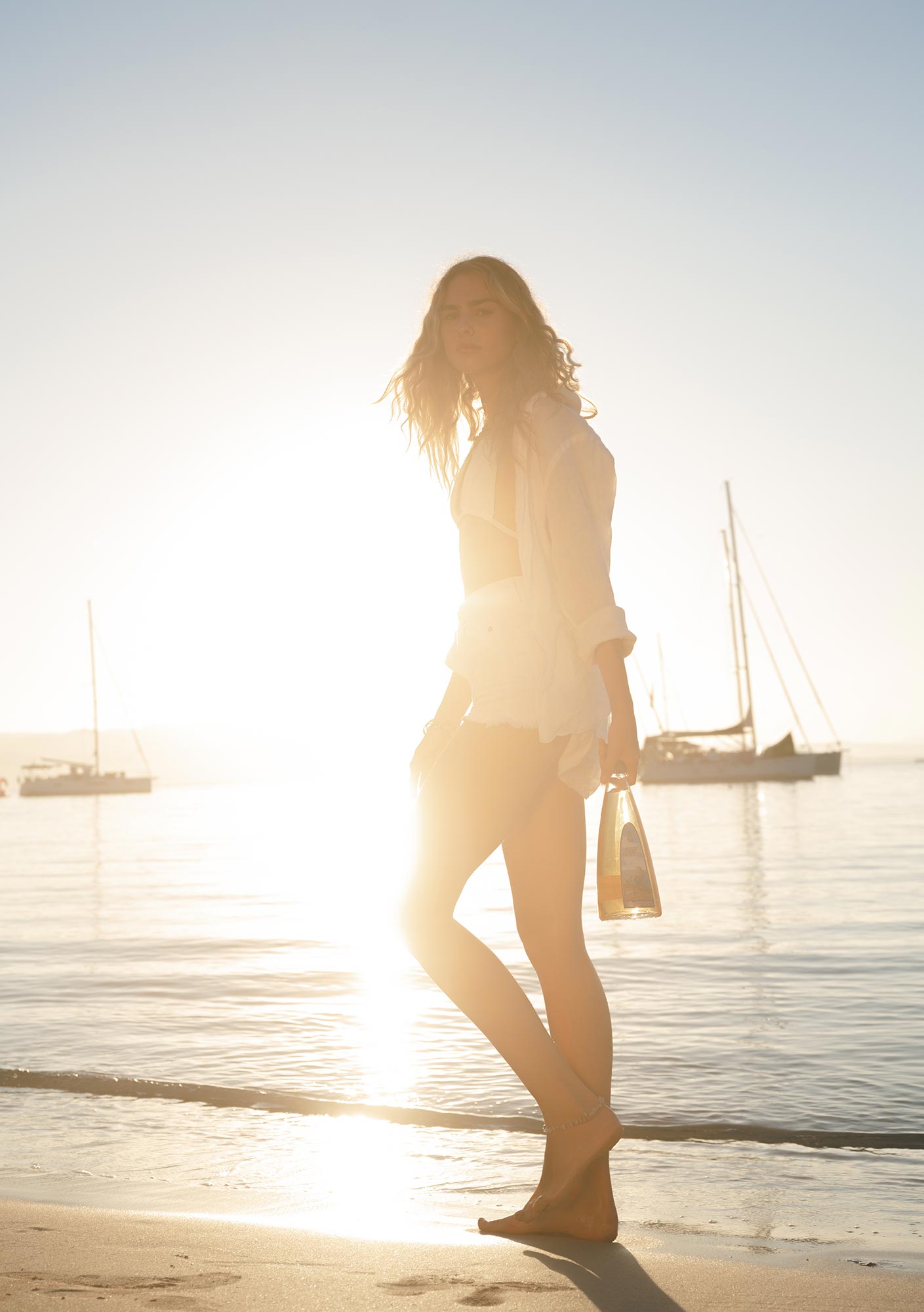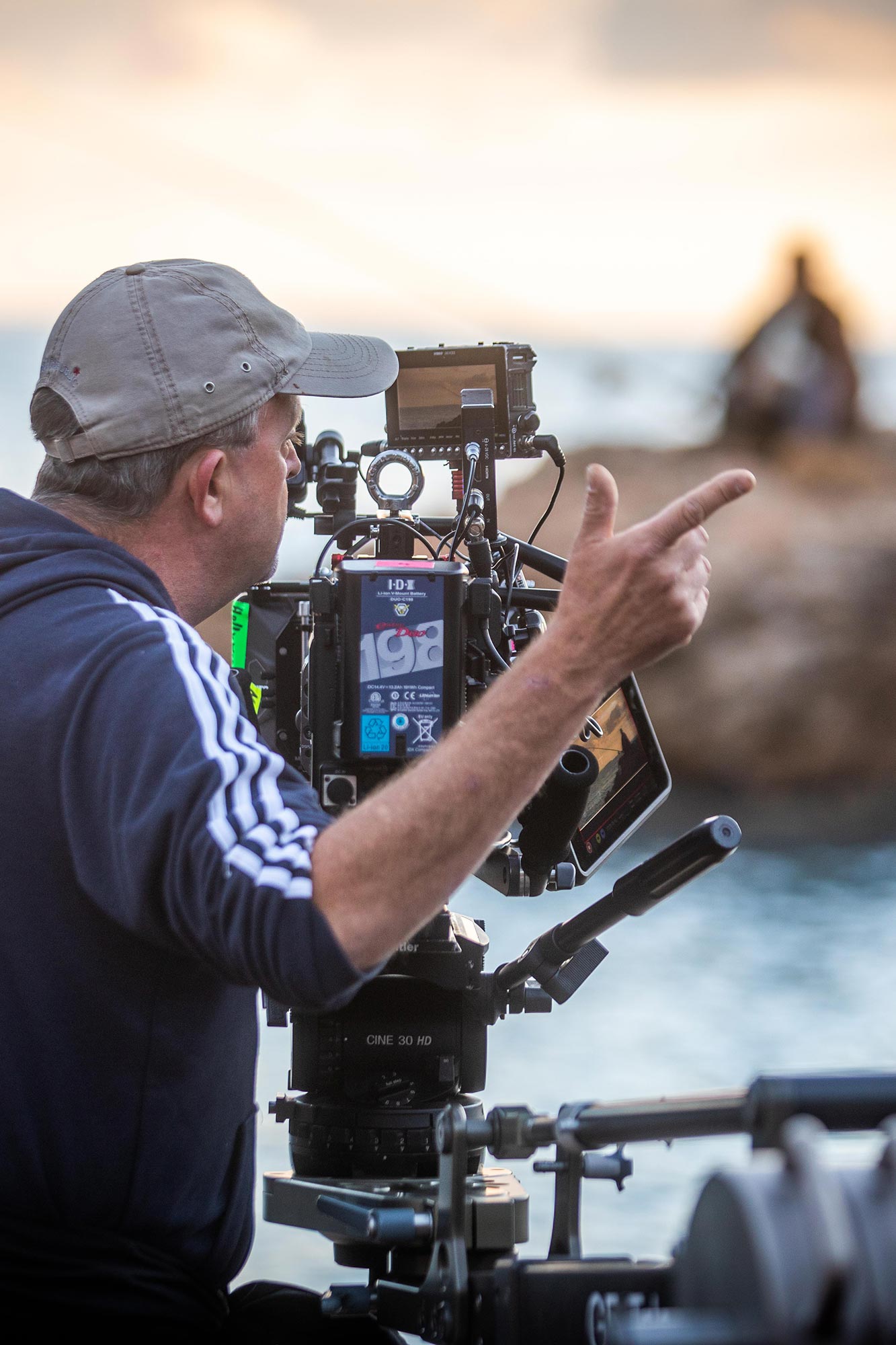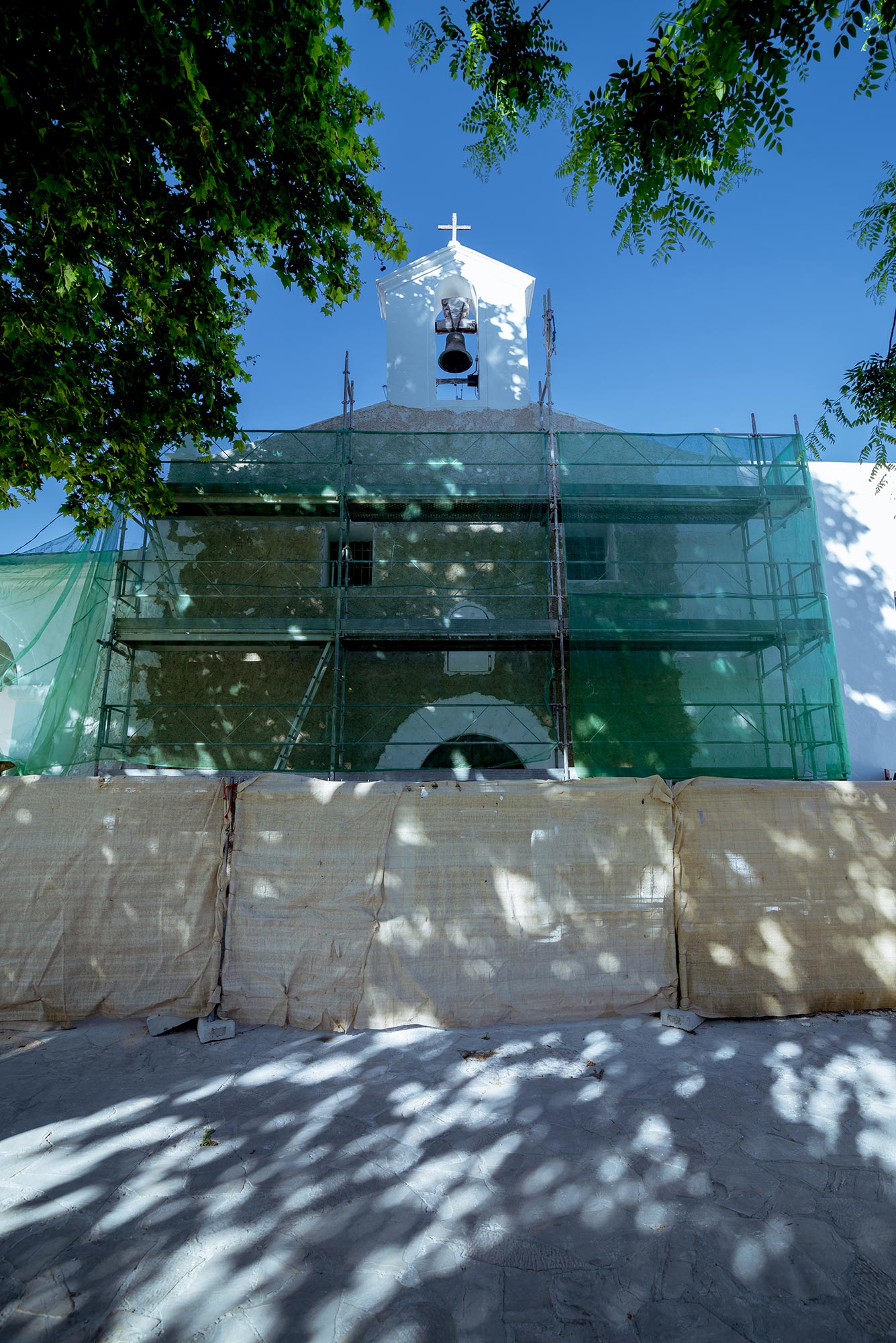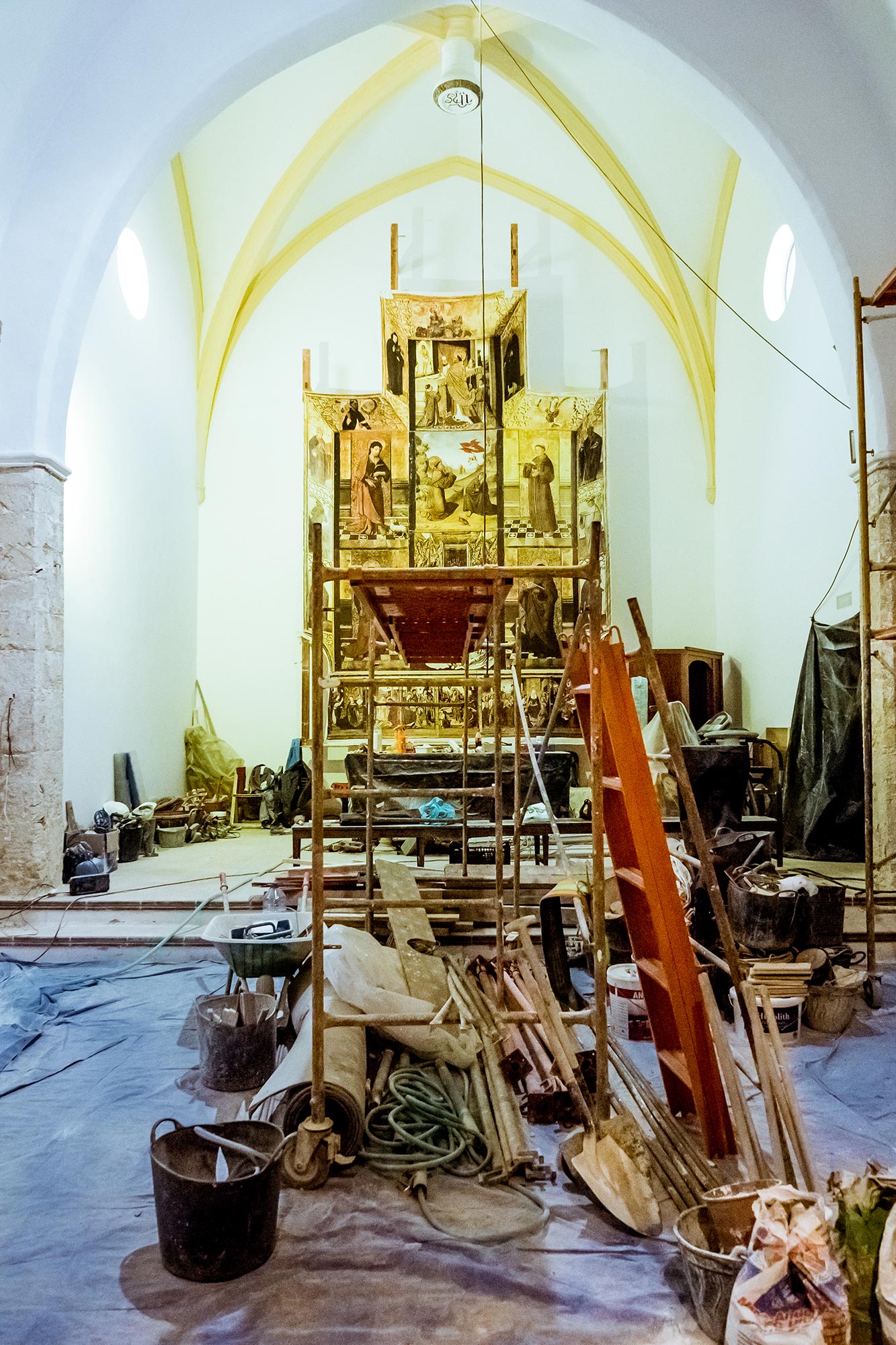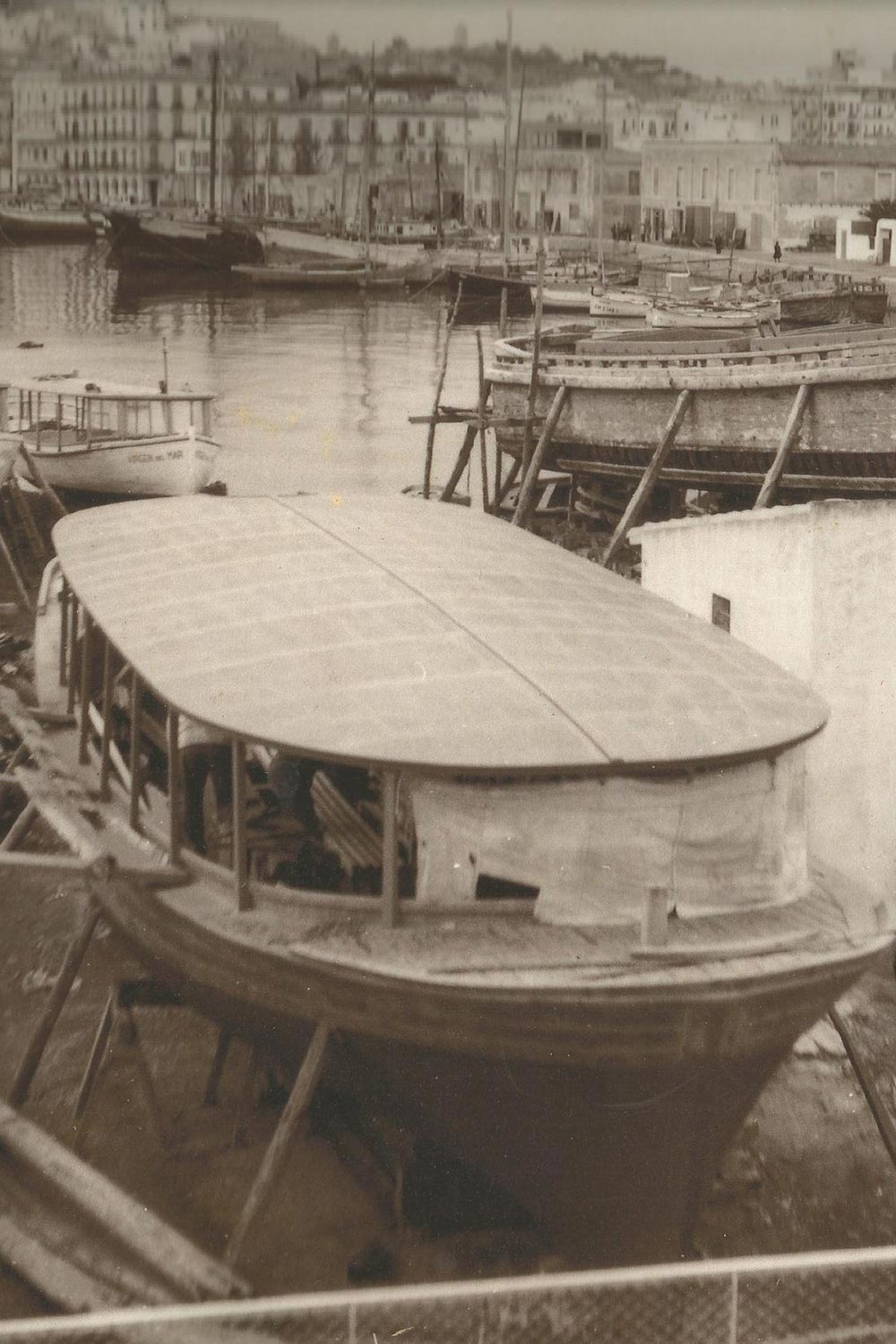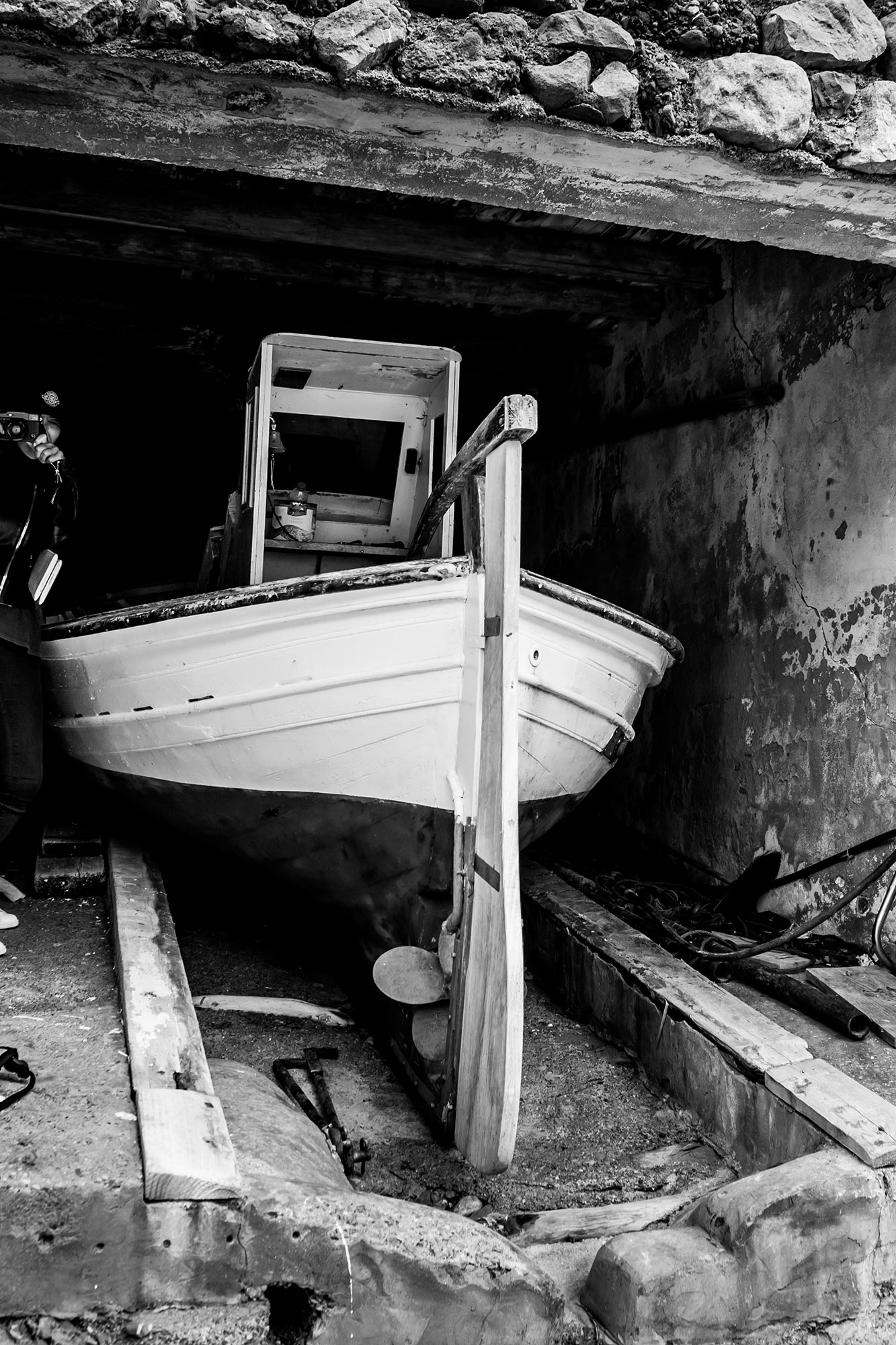Few products reflect the soul of Ibiza better than Ibizan herbs. And few are as famous on the island and around the world as the original ones, those of Familia Marí Mayans, with that iconic and recognisable bottle in the shape of a peasant girl. Bartolomé and Carlos are at the helm of the successful company that their great-great-grandfather Juan Marí Mayans, contrary to what you might think, did not originally set up on Ibiza, but on Formentera. “The first distillery was located in Es Caló (Formentera) in a building that still survives today, called S’Almabí, where the first still was located.”
In the mid-19th century, Formentera had only around 1,000 inhabitants, but there was a repopulation with emigrants from Ibiza, most of them from the Sant Josep area, like the parents of Juan Marí Mayans. The restless Juan combined fishing, agriculture, livestock farming and commerce, but, as his successors explain, “his curiosity and desire for innovation led him to look for a space to devote himself to what he was really enthusiastic about, thus turning his passion into something more than a hobby”.
Juan Marí Mayans made medicinal remedies for the people of Formentera at home, but he also had a marked entrepreneurial spirit and, with his small llaüt (typical fishing boat), he travelled to Barcelona to bring back to the island objects and utensils such as tin cans, needles, sewing thread. “On one of these trips, around 1860, he went to work in a famous distillery of the time, to learn the secrets of the stills and delve into the intricacies of the manufacture of spirits,” the Marí Mayans family tell us. “There he developed a true vocation for making beverages and liqueurs, and thus, at the end of the 19th century, the first spirits industry in the Balearic Islands was born in Formentera.
The first product marketed was Frígola, a thyme distillate with orange maceration, a trademark registered by this family more than 120 years ago. The Ibicencan herbs that we know today were created much later, and were simply called “hierbas”, as in the past each family made their own. The surname “ibicencas” came with tourism, export and the PGI (Protected Geographical Indication).
The original recipe was made with plants from the farms adjoining the distillery. Over the years and after various tests, the recipe and the production process were improved, although, as Bartolomé and Carlos Marí Mayans point out: “In essence, the current processes are identical to those of the time. We always distill, macerate and infuse all the plants separately in our factory”. And they add: “From the harvesting, in Ibiza and Formentera, to the selection of each plant, through the dehydration, hygiene and cutting, as well as the peeling of all the fruits and aromatics that make up the recipe, everything is done by hand. Distillation is carried out in a copper pot still over a low flame. The only thing that has changed is that the heat is now with gas burners and before it was direct fire with wood and charcoal. Obviously, everything that goes with homogenising the spirit has improved, with better quality control techniques, refiltering, etc.”.
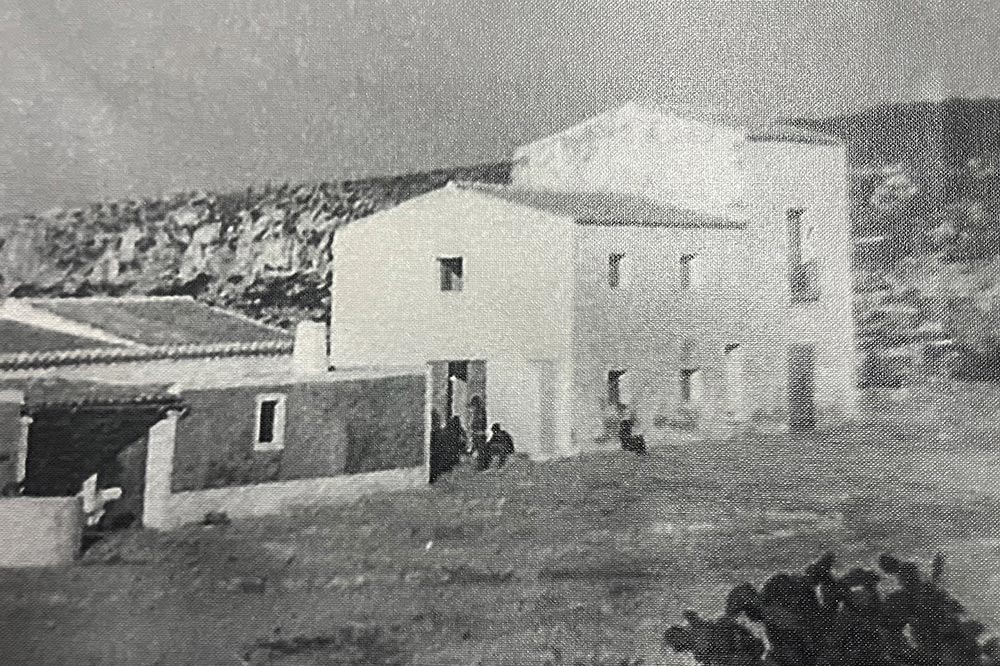
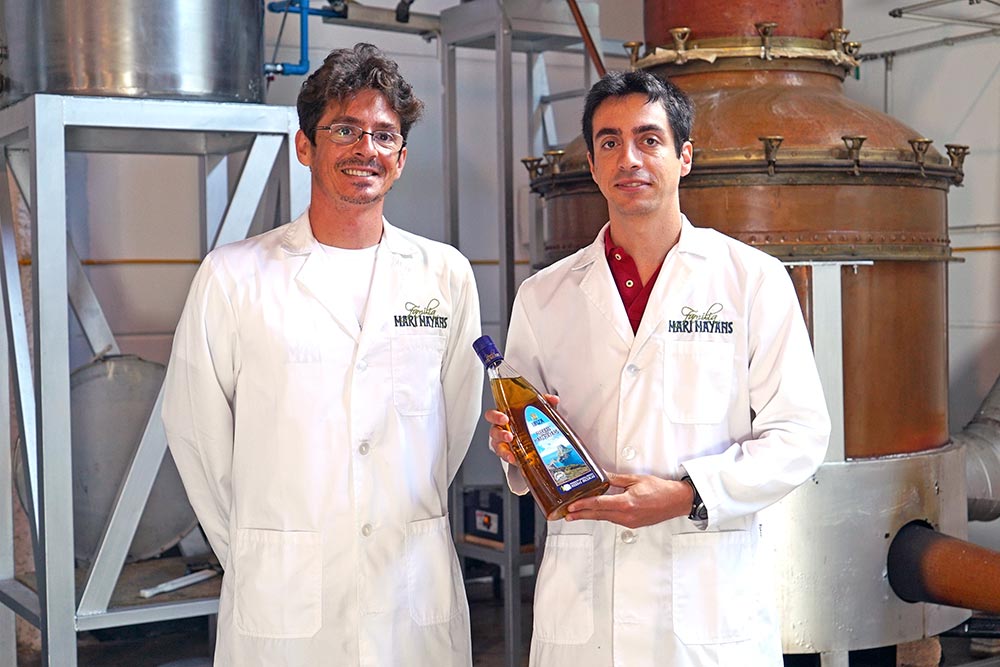
Another important change with respect to the original recipe is that the alcoholic content and sugar have been reduced: “We must not forget that they were born as a digestive and medicinal remedy”. There were also experiments that did not come to fruition, such as including apricots or spinach in the recipe.
The famous Ibizan herbs, which more and more mixologists are using as an ingredient in cocktails, account for around 75-80% of their turnover, but Familia Marí Mayans also sells Frígola, the brand’s first liqueur, which they recommend drinking without any accompaniment other than a glass of ice or in a very cold shot glass; Palo, a traditional aperitif based on woody plants which, according to them, is perfect with a few drops of lemon and a little carbonated water or soda; or the range of IBZ Gin gins, with three varieties: IBZ Premium Gin, Mediterranean-gastronomic, IBZ 48 Premium Dry Gin, with one of the highest alcoholic graduations in Spain, and IBZ Pink Strawberry, pink in colour and with hints of strawberries. All of them stand out for their excellent balance and refreshing taste to achieve the perfect gin and tonic for every occasion. In addition, they are always creating new products to offer to the market, such as the TeqMex® tequila (Reg. brand) that they have just introduced.
When demand increased, tourism and improved communications caused exports to rise, the company moved to Ibiza, where, at the beginning of the 80s, they experienced one of the hardest moments in the history of the business: a big fire in which, among many other things, a large quantity of frigola was lost, forcing them to drastically limit production. Recently, they have also experienced difficult times, such as during the pandemic, with shortages of raw materials and uncontrolled price rises in supplies as a result of the war in Ukraine.
However, they still love the job: “The greatest reward is to see our customers satisfied, the tireless quest to improve and to add more countries every year. They currently have a significant presence in places such as Germany, Switzerland, Italy, Belgium, Holland, the United Kingdom, South Africa, Dubai and Japan. However, Marí Mayans continues to be a 100% family business: “We have received numerous purchase offers, both from private individuals and large groups; some of them “un-refusable”, but we like what we do and we don’t want our brand, our liqueur, our surname, to be disconnected in any way with Ibiza and Formentera”.
The reasons for their great success? “The secret is nothing more than trying to seek the highest possible quality.”
